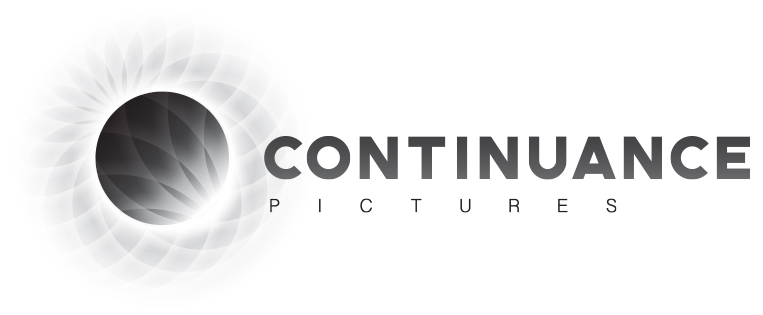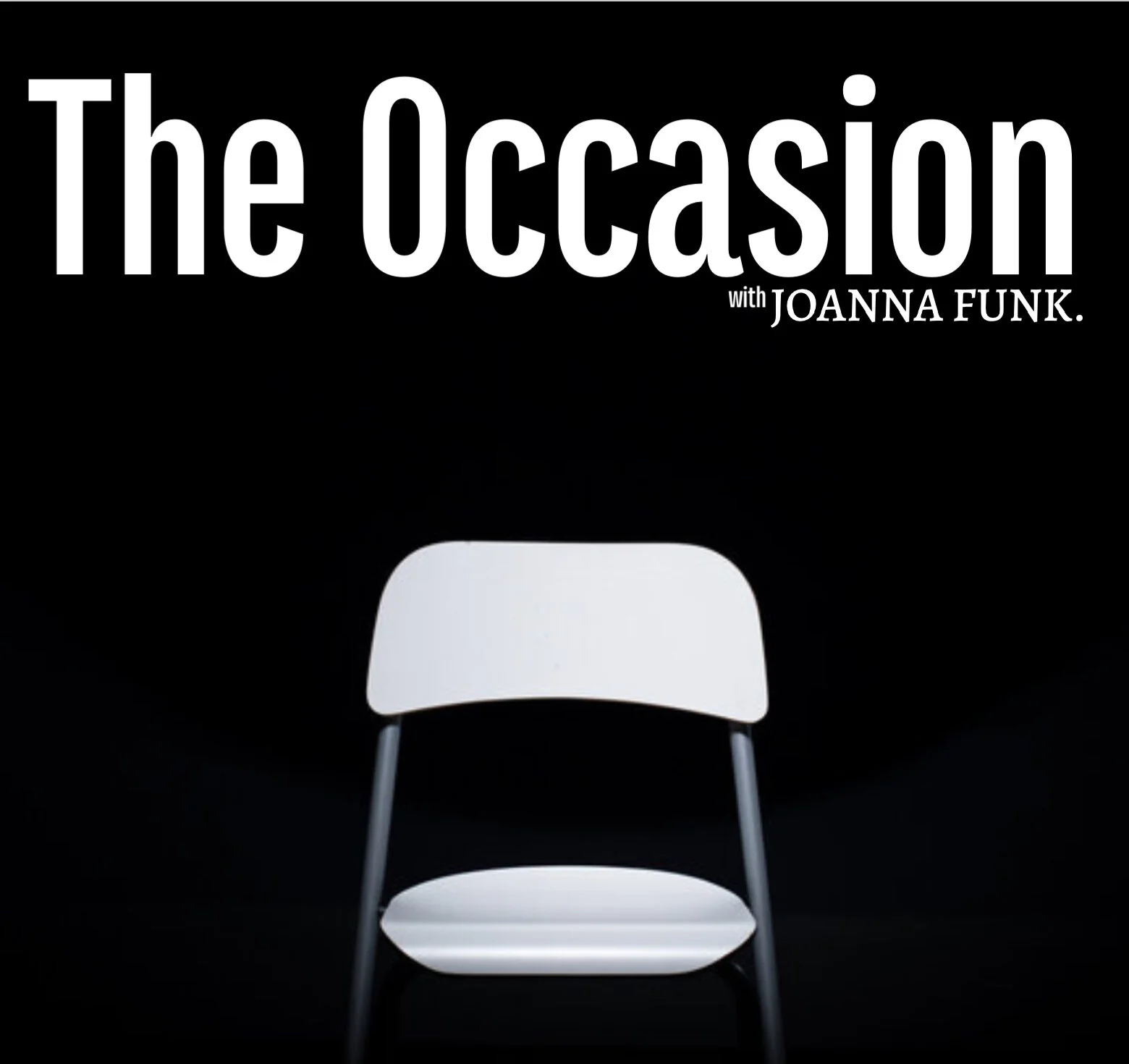INTERVIEWS
PODCAST
ARTICLES
FILM REVIEWS
EDITION 5
In a way, it’s where I’ve been all my life - between the magic and the darkness. There is so much horror in the world but you also see the most magical things.
Juan Carlos Castaneda
A director/cinematographer makes documentaries about extreme hardship all over the world. Now he is writing fiction; horrific and beautiful fantasy which shatters the way we see our heroes. Actually, the way we see our superheroes. Meet Juan Carlos Castaneda, creator of upcoming tv series, ‘American Diablo’.
Normally, a superhero fights to keep the status quo, because we think our society’s great, it’s working. The villain comes along and wants to destroy our world, and the superhero saves it. But in my take, our world is already fucked, and we don’t need bad guys because they’re already here running the show, and the whole system is broken. My superhero comes in unapologetically to take out anything and anyone. I mean, she’s almost a villain in herself, depending on who’s seeing her.
Juan, or ‘Caster’, as he is known (his film company Human Pictures is made up of three guys all named Juan) had a childhood which was split between Colombia and Miami. In Colombia, Caster loved to watch movies by himself, and he recalls sitting in movie theatres while bombs went off down the street.
Colombia has always been very violent, and you normalise it. I was born in 1977, in the middle of a full-blown civil war which lasted 52 years. Then in the 80’s and 90’s another war began with (Colombian drug lord) Pablo Escobar. Bombs were going off all the time.
As you grow up, you see super rich, super poor, super this, super that. You learn how unjust societies are. I don’t really believe in left and right. For me, it’s the Haves and the Have Nots.
Caster cites his mother as being the eyes through which he saw the world.
She’s the person directly responsible for me having sensitivity to anything. You know, it’s a single-mom-only-child story, we didn’t have a lot of money. It’s always been her and me. I have so many anecdotes about my mom. Once when I was a kid, we were driving through Nashville. For some reason she got us into a square dance contest. Now my mom is extremely Colombian, she was like: Ah, cookies if we win a prize! And we won the prize! It was 200 cookies. I remember the rest of the road trip just eating cookies, 200 cookies all the way up to New York.
Caster took on his mother’s joie de vivre. Spun with his own artistry it would put him on a plane to Australia.
By the time I was twelve I knew I would be an artist. I was drawing a lot, writing, reading. I loved music but it was too mathematical for me. Then I watched ‘Immortal Beloved’, the movie about Beethoven. There’s a scene where they define music. Beethoven called it hypnotism, that music is a way to transport the listener into the mind of the composer. If you want them to dance, you make them dance. If you want them to cry, you make them cry. I was taken by his definition, but I realised I was more taken by the movie experience. I started studying photography and by the time I was sixteen I knew I needed to be a filmmaker.
Juan Mejia, Caster’s best friend in high school, was a big influence.
Juan opened my mind to social justice, and the idea that you can actually do something about it. When we were 15 years old, we daydreamed about creating a company to change the world. I said, “I want to do it with a camera”. Juan wanted to study Anthropology at university, and he did that.
Caster took two degrees at RMIT in Melbourne, in Photography and Animation.
I wanted my college experience to be outside the U.S. It had to be an English or Spanish-speaking country, so I was thinking of England, Spain, Australia. I knew nothing about Australia! It was a blank. I thought: that’s perfect!
My first artistic work was claymation. I was going to send it with my applications. When I was halfway done with the film I ran out of money, so I finished it with a videocam. So my stop-motion (animation) was a mixture of 8mm film and video camera work. It was a mess. But RMIT accepted me! When I eventually asked them why they chose me, they said, “We loved how you mixed medias.” I told them it was just because I ran out of money. They said yes, it was the resourcefulness that they loved.
Despite the distance Caster and Juan Mejia stayed in touch, and worked together on Caster’s RMIT thesis.
Colombia was in a state of civil war and we were asking ourselves: what is going to happen there after the war ends? We decided to make a documentary about the youth in El Salvador. Civil war had torn that country, and we spent a couple of months filming what it was like to be a young person living there after the war. Juan directed while I filmed, and was our first project as friends, and as Human Pictures.
Before returning to the U.S., Caster travelled as much as he could. I went all over, within Australia and to Asia, Africa and Europe. Australia is so far that you can literally take any route around the world. By the time I came back to Miami, I felt how small the world is. How close and connected everything is and that everywhere, people are the same. They behave the same way, and their problems are universal.
Caster went to Chapman University in California for his MFA, studying Directing, Cinematography and Animation. I still loved animation and took extra classes in 3D and everything, just for my inner geek.
The two Juans were joined by a third, Juan Yepes, and in the early 2000s the film company Human Pictures was officially formed. (Note that the company email is somejuan@humanpictures.com).
Juan Yepes (Juancho) is the spine of our company. Juan Mejia and I indeed dreamed about creating Human Pictures, but Juancho (who is a civil and electronics engineer) enabled it to happen. He deals with the business, taxes, client emails, and all the other stuff so that Juan and I get a chance to create. In other words, without Juancho, Human Pictures would have remained in the ether of our dreams.
At the start everyone had to freelance other jobs to survive, but they protected their brand. Human Pictures became known for visually compelling documentaries, created with intelligence and empathy.
Then in 2010, Human Pictures was commissioned by the United Nations to make a tv commercial about racism against black women in Colombia.
They specifically wanted a film company which would be sensitive to the subject matter, and we were known for making documentaries about war and racism in Colombia. The tv commercial was shown in Colombia, and it was in Spanish. We were getting grants and other income, but being commissioned by the UN was the first time we actually got paid to make a film.
Human Pictures now makes films for the United Nations, Malteser International (part of the 800-year-old charity organisation, the Order of Malta) and the Equal Justice Initiative in the U.S.
Caster still had an inner battle. He recalled his RMIT professor.
The day after I landed in Melbourne I went to the university and found one of my professors. He said, “You left behind your whole life to come here. So what do you want to say that’s so damned important?” I was 18 when I got to Australia, and when I left I still didn’t really know what I wanted to say.
Human Pictures makes documentaries that hopefully help someone. But I have always wanted to write fiction. Sometimes I would feel almost guilty because I want to talk about wizards and magic! How can I do that when all these people are starving and dying, or there is a war and people are suffering?
We shot a feature documentary called ‘Death By A Thousand Cuts’ over a period of four years in the Dominican Republic and Haiti. It was a lot of camping, going into the countryside and seeing crazy stuff. I was saying to myself: I’m very lucky. I’m working with my best friends, it’s a great experience that not everyone gets to have. But I also felt like my life is passing by and I’m not doing what I want. I mean, how much older do I have to be before I start doing MY films? I’m good at documentaries, but that doesn’t mean it’s what I should be doing.
I realised that I had to start doing my own fiction, and my fiction will be based on all the craziness that I have seen. I will take the darkness and the reality that I see every day in my documentaries, and unify it with my own fiction. Then I will take it somewhere else. I will talk about these human issues which are important to me, but not through the lens of a documentary. It will be like putting vitamins into ice cream.
In early 2020 Continuance Pictures was accepting submissions for its script-writing contest, and Caster submitted one for a film called ‘Miami Gothic’.
‘Miami Gothic’ is surreal, and very dark. The main character is an immigrant who is deaf, and who needs to find her voice. She’s seen as a most undesirable person, in her society and in ours. But she’s the one that ends up becoming a superhero.
Late last year Caster received an email from Continuance Pictures co-founders David Gim and Tristan Barr about developing the idea.
I’d totally forgotten about ‘Miami Gothic’ since I’d sent it pre-Covid. After Covid hit it was like - just forget everything. All the theatres were closed and everybody was indoors watching movies and bingeing everything like crazy.
In response to that, Caster had written a bible - an outline for a television series - based on the same story. He called it ‘American Diablo’.
I showed that to David and Tristan and they said, “We have to make ‘American Diablo’. That’s the one.”
Caster has chosen an actress who is deaf to play the lead in ‘American Diablo’.
It’s not about just giving a chance to someone who is deaf. No. If I’m making a film about deaf people I want them to teach me. I want to represent the deaf community as well as possible, without making it about being deaf. So someone who has watched the series will recall, ‘Oh yeah, she was deaf,’ but it’s not a big deal. That’s normalising, and that’s how you reach true equality. The actress for ‘American Diablo’ is Latina, with dark hair, and of Puerto Rican background.
As they begin a new partnership, Caster summarised his relationship with Continuance within the grander scheme of things.
The most important thing I get from talking with David and Tristan, is that they’re not so interested in the film itself, as in the filming. They want to make a bond, almost like casting for a friend. You want to find someone who you can collaborate with artistically, but at the end of the day you can also have some beers, and just enjoy what you’re doing. These guys are definitely on the same wavelength. It’s not just about the one movie. We’re dedicated to doing this forever. Until we can’t.
Juan Carlos Castaneda


